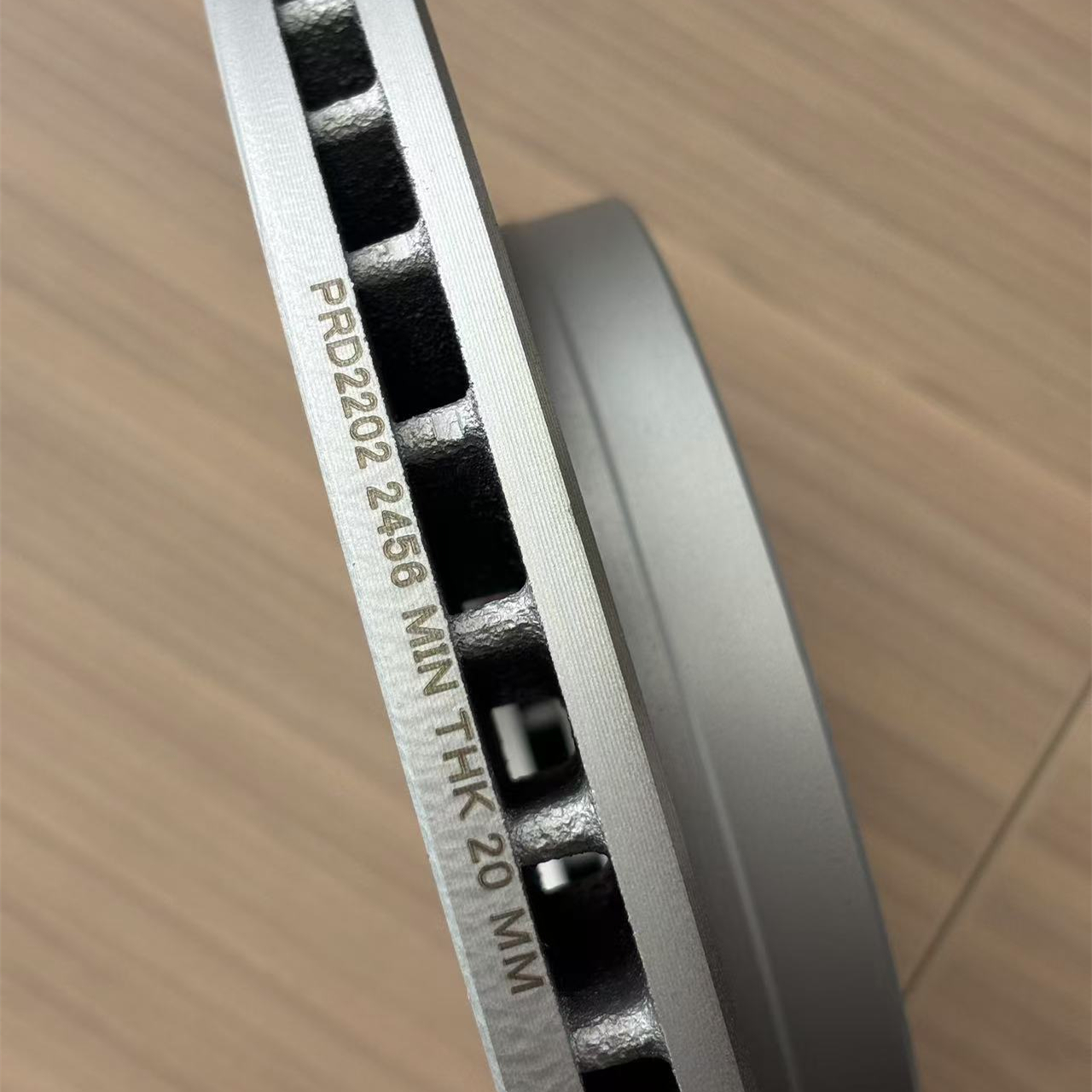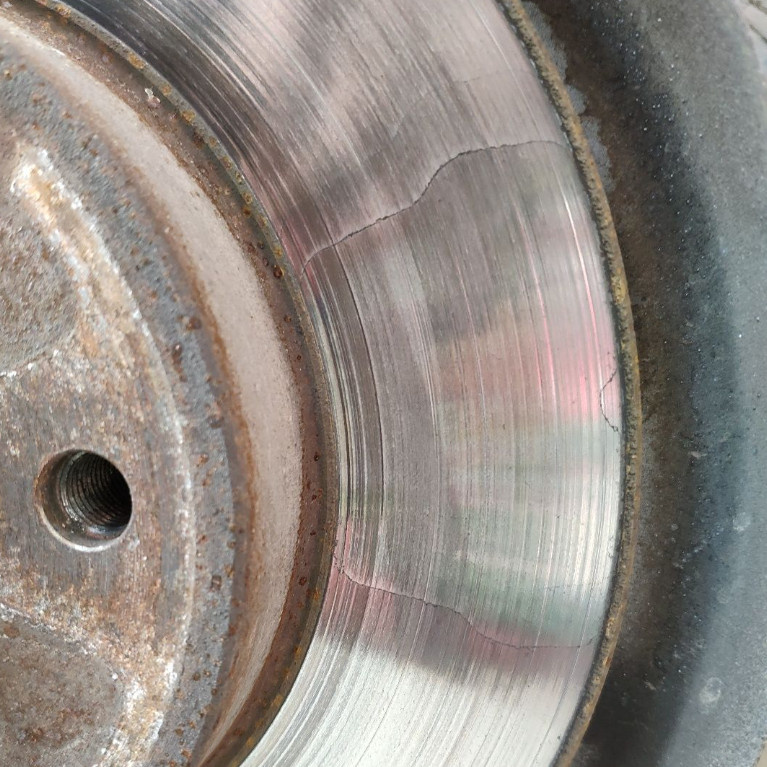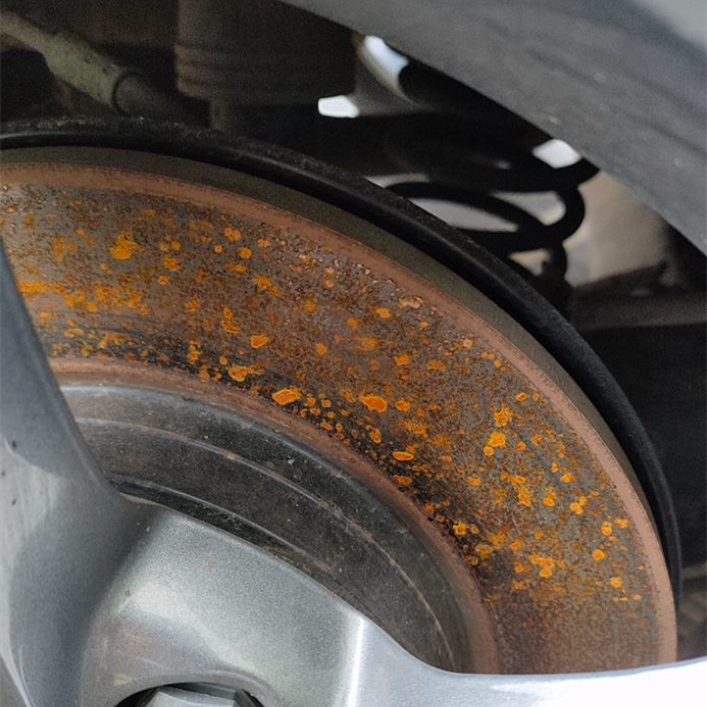Daily maintenance tips for brake discs
2024-10-18 09:32Daily maintenance of brake discs is essential to ensure the braking performance of your vehicle and extend the life of your brake discs. Here are some key daily maintenance tips for brake discs:
1. Check the thickness of your brake discs regularly
The thickness of your brake discs will gradually wear out over time. When the thickness drops to the minimum standard specified by the manufacturer, the braking effect of the brake disc will be significantly reduced. Check the thickness of your brake discs regularly to ensure that they are replaced in time when necessary.

2. Check the surface of your brake discs for cracks or grooves
Over time, brake discs may develop cracks, grooves, or uneven wear, which can affect the braking effect. This is especially true for perforated or scored brake discs, which are designed to improve heat dissipation, but if they wear unevenly, they will accelerate the aging of the brake discs. Regularly visually check the surface of the brake discs for smoothness and polish or replace them if necessary.

3. Clean your brake discs
Brake discs absorb a lot of dust, sand, and road dirt from the brake pads. These impurities may affect the friction between the brake disc and the brake pads, reducing the braking effect. You can use brake cleaner to remove these impurities and ensure that the brake discs remain clean.
4. Avoid prolonged and intense braking
Avoid prolonged and intense braking when driving at high speed for a long time or going down a steep slope. Frequent braking can cause the brake disc to overheat, resulting in thermal decay and affecting the braking effect. Reasonably use engine braking to avoid excessive brake disc temperature and reduce the pressure of the brake system.
5. Replace brake pads in time
The wear of the brake pads directly affects the service life of the brake disc. When the brake pads are excessively worn, the brake disc will come into direct contact with the metal part, causing damage to the brake disc. Check the wear of the brake pads regularly and replace the brake pads in time if necessary to protect the brake disc.
6. Avoid frequent immersion in water
If the brake disc is wet or immersed in water for a long time, it may rust or corrode, especially when driving in rainy season or wading road conditions. Try to avoid parking the vehicle in a humid environment for a long time. If the brake disc makes an abnormal sound after being immersed in water, you can use low-speed braking to shake off the water on the brake disc.

7. Tighten the wheel hub bolts evenly
When replacing tires or performing brake system maintenance, ensure that the wheel hub bolts are tightened evenly and appropriately. Overtightened or loose bolts can cause the brake disc to deform, which in turn affects the braking effect and life.
8. Note on the running-in period of the brake disc
If a new brake disc is replaced, the first few hundred kilometers are the running-in period. During this period, avoid emergency braking and high-speed driving to prevent excessive wear of the friction surface of the brake disc and brake pad or unnecessary heat.
9. Regular professional inspections
Although daily inspections and maintenance are necessary, professional technicians should conduct a comprehensive inspection of the brake system every once in a while (for example, every 10,000 kilometers or every year) to ensure that it is in good working condition and to detect potential problems in time.
10. Avoid overloading
Overloading the vehicle will cause additional pressure and burden on the brake system, especially the brake disc, which may accelerate wear. Therefore, excessive load should be avoided during driving to reduce damage to the brake disc.
With the above maintenance tips, you can effectively extend the service life of the brake disc and ensure that the brake system is always in the best working condition, thereby improving driving safety.









